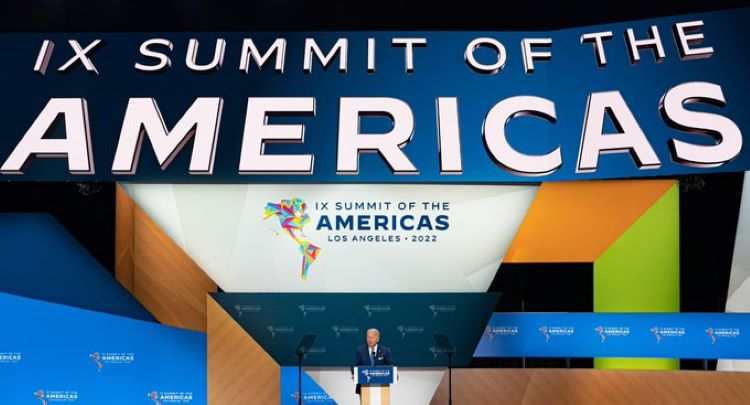Eduardo González
The Spanish government has committed at the Summit of the Americas to “double” the “labor pathways” for Honduran migrants who wish to participate in “circular migration programs in Spain.”
This is stated in the Los Angeles Declaration on Migration and Protection U.S. Government and Foreign Partner Deliverables, released yesterday by the White House during the last day of the Summit of the Americas, which was held since last Monday in Los Angeles (California) and in which Spain participated as an observer country.
Last week, the prestigious US news portal Axios reported on President Joe Biden’s desire to be able to announce, during the Summit of the Americas, the signing of an agreement with Spain for the resettlement of Central American refugees, a measure that would favor the President of the United States politically due to the very high number of migrants and asylum seekers that his Administration is facing at the southern border.
According to sources quoted by the publication, the initial number of refugees relocated by Spain would be “modest” but “symbolically important” and would be part of the Spanish Government’s interest in doubling or even tripling the number of temporary workers for the construction sector from Central America. A senior White House official confirmed this week the contacts and assured that Spain and Canada are a “fundamental part” in the solution of the Central American migratory problem.
Washington’s objective was to coincide the conclusion of the agreement with the attendance of the Minister of Foreign Affairs, José Manuel Albares, at the Summit of the Americas as a guest (the Summit brings together the leaders of the member states of the Organization of American States, OAS, in which Spain has permanent observer status). However, the minister was forced to cancel his trip to the U.S. to go to Brussels, where yesterday he met with the Vice-President of the European Commission, Valdis Dombrovskis, to discuss the trade sanctions adopted by Algeria against Spain. Albares was replaced by the State Secretary for International Cooperation, Pilar Cancela.
Finally, the Los Angeles Declaration lays the foundations for “shared responsibility” in migration management in the Americas based on “four fundamental pillars”: stability and assistance to communities, expansion of legal channels, humane management of migration and coordinated emergency response. Spain is included in the second pillar chapter on “expanding legal channels” in the areas of employment, protection and family reunification, with special attention to the expansion of temporary worker programs to address labor shortages.
In this chapter, Canada has committed to take in more than 50,000 agricultural workers from Mexico, Guatemala and the Caribbean by 2022, Mexico will launch a new temporary employment program to hire between 15,000 and 20,000 Guatemalan workers each year, and the United States has committed to resettle 20,000 refugees from the Americas between 2023 and 2024.
As for the “observer states”, the text specifies that “Spain will double the number of labor pathways for Hondurans to participate in Spain’s circular migration programs”. Circular migration is a formula for the temporary and generally repetitive movement of a migrant worker between origin and host areas, generally for employment purposes. Spain and Honduras have an agreement on circular migration, approved last December by the Congress, which provides a temporary work opportunity for Hondurans. More than 120,000 Hondurans currently reside in Spain, mainly in Catalonia and Madrid.
On May 25, the Spain-US Working Group on Central America met in Madrid, with the participation of the Secretary of State for Ibero-America, the Caribbean and Spanish in the World, Juan Fernández Trigo, and the US Deputy Assistant Secretary of State for Western Hemisphere Affairs, Emily Mendrala, together with representatives of the United States Agency for International Development (USAID), the Department of Homeland Security, the Spanish Agency for International Development Cooperation (AECID) and the Ministry of Inclusion, Social Security and Migration. At the end of that meeting, the two parties reported that they had “studied proposals and actions to address jointly and with the countries of the region the challenges posed by forced displacement and irregular migratory movements in and from Central America”.







